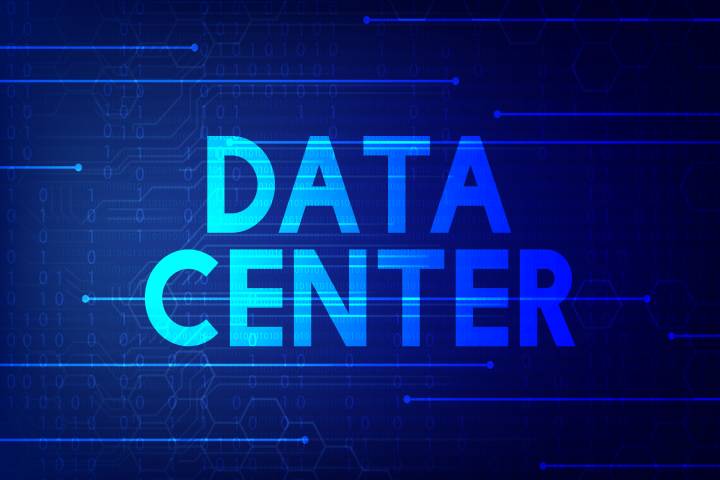Data Center Operators Rethink Use Of Nuclear Power

The war in Ukraine has aggravated the energy crisis. Both Europe and other regions are rethinking their energy strategy for the future, looking for ways to guarantee supply without increasing carbon emissions. For their part, data center operators are increasingly concerned about this issue and looking to the future. They are considering the use of nuclear energy in combination with renewable sources.
The fight against climate change is leading many countries to abandon polluting energies, but renewable energies are not yet mature enough to satisfy the total demand. For this reason, nuclear energy is being reconsidered as a way to guarantee supply during the slow transition to renewables. This technology produces electricity with hardly any carbon emissions, and different industries are reassessing its use to avoid facing energy shortages in the years to come.
This change in perception is gaining momentum due to the war in Ukraine, which puts the supply of energy sources such as gas or oil at risk, making energy more expensive even though its generation does not depend on these raw materials. In response to this situation, the data center industry is considering combining nuclear power with renewable sources to ensure availability and stabilize prices in the future.
In a recent article published by the Uptime Institute, its executive director of research, Experts, comments that reluctance to use nuclear power due to radioactive waste will be overcome as it becomes more important to generate low-carbon energy. Carbon does not depend on the local climate, as is the case with many renewables. For this reason, he foresees that from 2022 some of the main data center operators and industry leaders will support nuclear energy, putting more pressure on governments to resume and encourage the use of this energy.
On the one hand, experts believe that the data center industry will publicly endorse nuclear power as a carbon-neutral source that is viable and necessary. This has already been seen through the EU Carbon Neutral Data Center Pact, whose members have expressed themselves in this regard. And the big cloud hyperscalers, such as AWS, Google and Microsoft, also see nuclear power as playing an important role in “clean” power generation.
On the other hand, the Uptime Institute believes that more data center operators will purchase nuclear power as part of power purchase agreements (PPAs), combining it with renewable sources. This will help them ensure availability while looking for ways to reduce their carbon footprint, and contracts of this type are already being registered in the sector. With this, they would also achieve greater long-term price stability, which does not happen with PPA agreements based solely on renewables.
One of the problems that experts perceive is that during the last decades, the tendency of many countries has been towards the reduction of nuclear energy in favor of other sources. For this reason, if new investments in nuclear plants are not made, the availability of this type of energy will be less and less. Although countries such as China and India continue to invest in new nuclear plants, their use is in remission in other regions such as Europe, Japan, and the United States. And in some cases, they resort to non-renewable sources to guarantee supply.
Innovative nuclear projects are emerging in the current context, such as new generations of Smaller Modular Reactors (SMR), which could meet local needs. Examples of this are private and government-financed projects in the United Kingdom, France, the United States or South Korea, where certain sectors are trying to boost nuclear power using new technologies.
This new generation of nuclear reactors allows for a much more simplified plant design, is highly prefabricated and has passive safety systems for cooling based on convection, pressure and other forces, eliminating the need for emergency backup systems. This reduced form factor opens the door to small-scale nuclear reactors (from 10 to 100 megawatts) for specific uses, which would directly supply electricity to companies that consume a lot of energy, such as hyperscale data centers.
In addition, the construction of this type of plant takes between 3 and 5 years, while traditional nuclear power plant projects have terms of around ten years. And experts say financing small nuclear power plants for large data center operators, which could cost as little as a few hundred million dollars, could be done through PPAs. This alternative to current energy would not only be of interest to hyperscale giants. If proven capable, it could be a viable option for large data center campuses and regions where many facilities are concentrated in a relatively small area.
Another advantage of these plants is that they would have pre-charged fuel to operate for ten years without costly and complex refueling. However, some questions remain to be resolved about the use of SMR in the data center industry, such as power redundancy, cost, safety and security of facilities, or the difficulty in matching the useful life of these reactors with that of the data center.
There is also strong opposition to nuclear power in many regions due to radioactive waste, which hampers initiatives to implement new generation reactors, such as SMRs. But the reality is that most modern renewable energy and energy storage technologies are not yet mature enough to replace polluting energy fully, and it will take many years to do so. For this reason, many experts believe that completely abandoning these sources without resorting to nuclear power is practically a utopia, and industries such as data centers will try to promote the use of nuclear power shortly to cover an increasing energy demand.
Also Read: How To Prepare Your Business Network For Microsoft Teams Telephony
